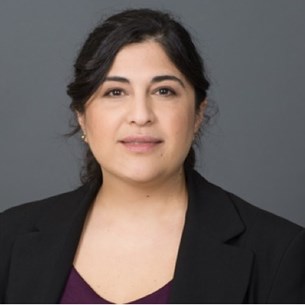Meeting
2014 ASCO Annual Meeting

Department of Neurology, University Hospital Zurich, Zurich, Switzerland
Ghazaleh Tabatabai , Wolfgang Wick , Joachim Peter Steinbach , Antje Wick , Oliver Schnell , Peter Hau , Ulrich Herrlinger , Michael Sabel , Hans-Georg Wirsching , Ralf Ketter , Oliver Baehr , Michael Platten , Joerg Tonn , Johannes Huesing , Guido Reifenberger , Michael Weller
Background: Rechallenge with temozolomide (TMZ) at first progression of glioblastoma after radiotherapy with concomitant and maintenance temozolomide (TMZ/RT→TMZ) has been studied in retrospective and single-arm prospective studies, applying TMZ continuously or using 7/14 or 21/28 days schedules. Progression-free survival rates have been in the range of 10-30% without any major prognostic impact of O6-methylguanine DNA methyltransferase (MGMT). Methods: Glioblastoma patients at first progression after TMZ/RT→TMZ and at least 2 maintenance TMZ cycles were randomized to Arm A (one week on (150 mg/sqm TMZ per day) / one week off) or to Arm B (three weeks on (100 mg/sqm TMZ per day) / one week off). The primary end point was median time to treatment failure defined as progression, premature (< 12 months) TMZ discontinuation for toxicity, or death from any cause; 166 patients were deemed necessary to show a meaningful difference between arms. Results: Because of withdrawal of support, the trial was prematurely closed to accrual after 105 patients.The outcomes in Arm A and Arm B for the primary endpoint of median time to treatment failure (56 days [95% CI 55-98] vs. 59.5 days [95% CI 56-105]) and for overall survival (OS) (298 days [95% CI 202-395] vs. 322 days, [95% CI 246-356]) were similar. These endpoints differed, however, by MGMT promoter methylation status, which was informative for all patients. Median time to treatment failure in patients with MGMT-methylated tumors was 98 days [95% CI 56-223] vs. 56 days [95% CI 56-60] in MGMT-unmethylated glioblastoma. PFS-6 was 39.7% vs. 6.9% with vs. without MGMT promoter methylation; OS with MGMT-methylated glioblastoma was 382 days [95% CI 300-531] vs. 241 days [95% CI 191-313] in MGMT-unmethylated glioblastoma. Hematological toxicity > grade 3 was similar (27% Arm A vs. 30.7% Arm B). Conclusions: TMZ rechallenge is an active treatment for MGMT promoter-methylated glioblastoma progressive after standard therapy. The best TMZ regimen remains to be defined. Alternative strategies are warranted for patients with progressive MGMT-unmethylated glioblastoma. Clinical trial information: NCT00941460.
Disclaimer
This material on this page is ©2024 American Society of Clinical Oncology, all rights reserved. Licensing available upon request. For more information, please contact licensing@asco.org
2014 ASCO Annual Meeting
Poster Highlights Session
Central Nervous System Tumors
Central Nervous System Tumors
Central Nervous System Tumors
NCT00941460
J Clin Oncol 32:5s, 2014 (suppl; abstr 2015)
10.1200/jco.2014.32.15_suppl.2015
2015
5
Abstract Disclosures
2023 ASCO Annual Meeting
First Author: Paul James Mulholland
2022 ASCO Annual Meeting
First Author: Dorota Goplen
2023 ASCO Annual Meeting
First Author: David D. Tran
2022 ASCO Annual Meeting
First Author: Giuseppe Lombardi